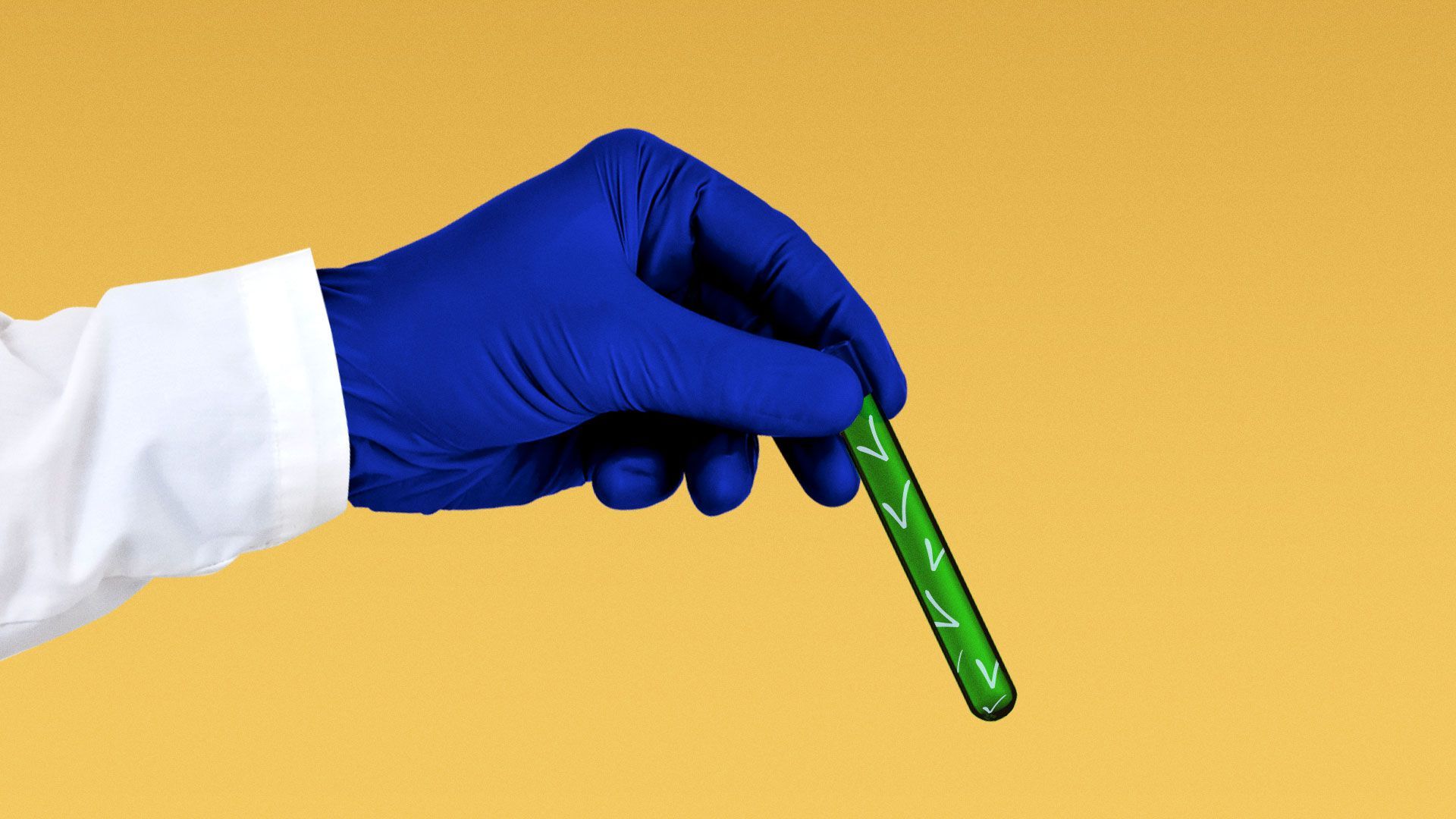Aug 20, 2020 - Health
Many Americans still don't have coronavirus testing access
Add Axios as your preferred source to
see more of our stories on Google.

Illustration: Eniola Odetunde/Axios
Add Axios as your preferred source to
see more of our stories on Google.

Illustration: Eniola Odetunde/Axios